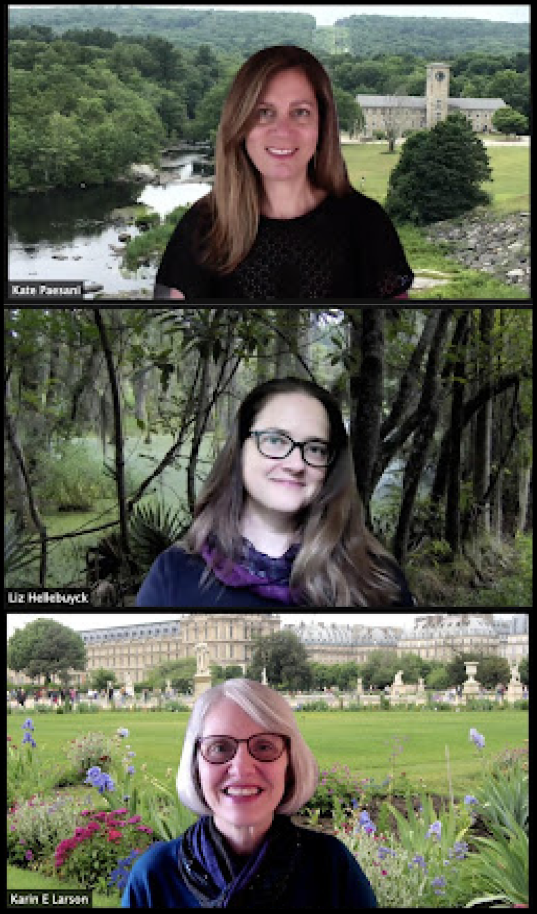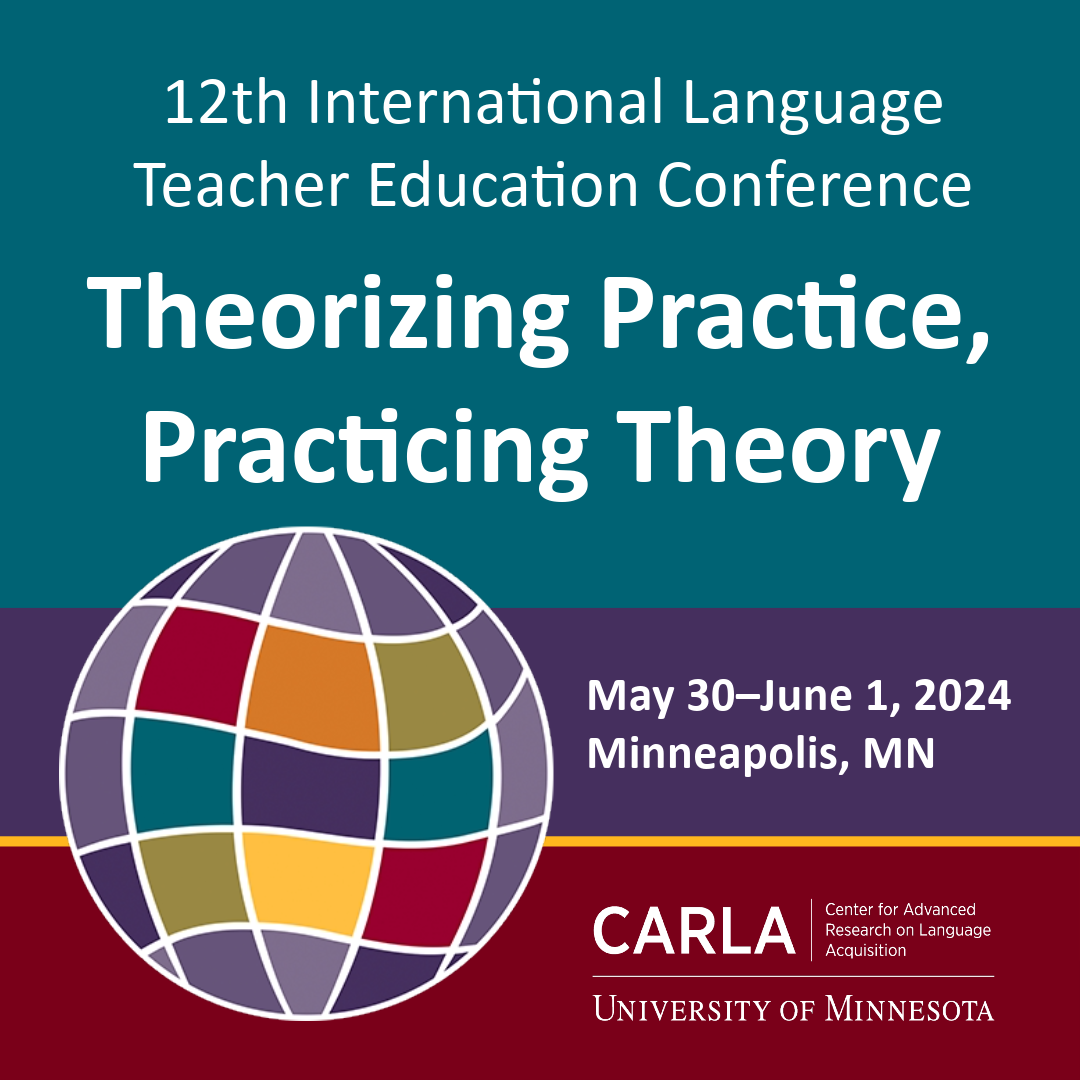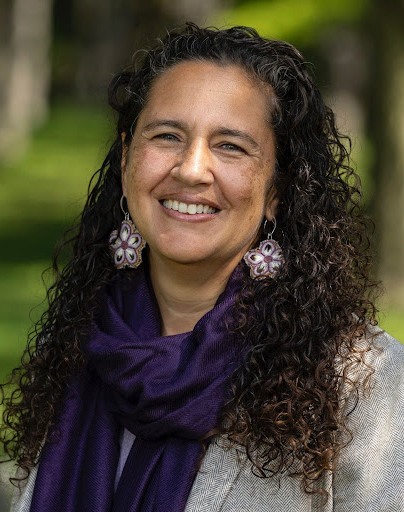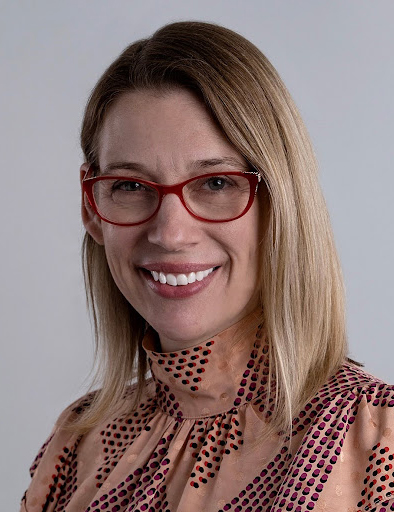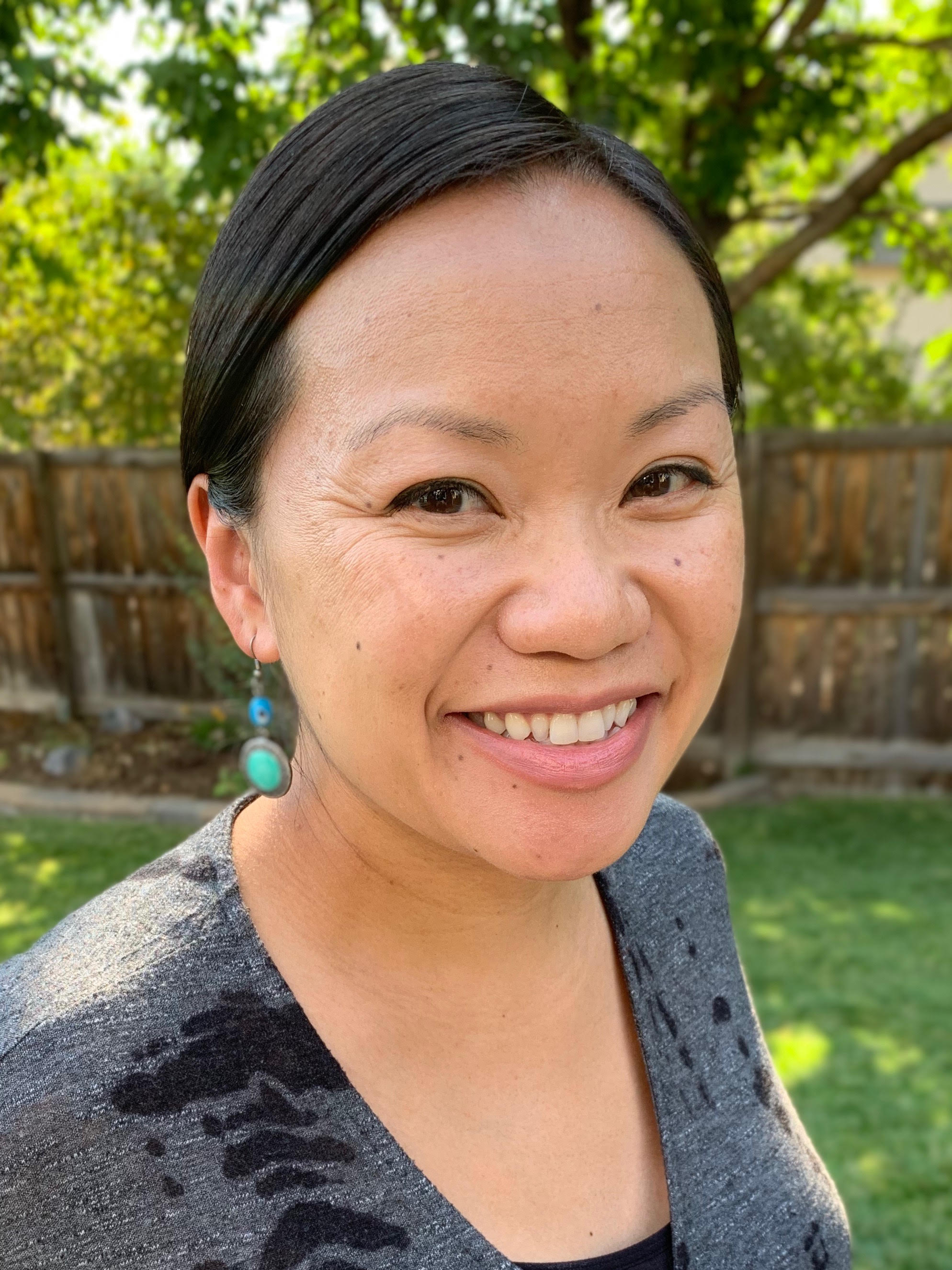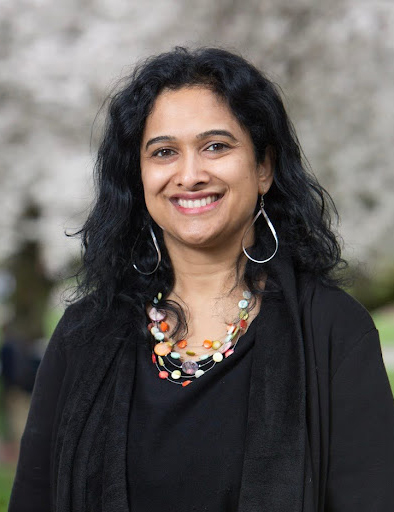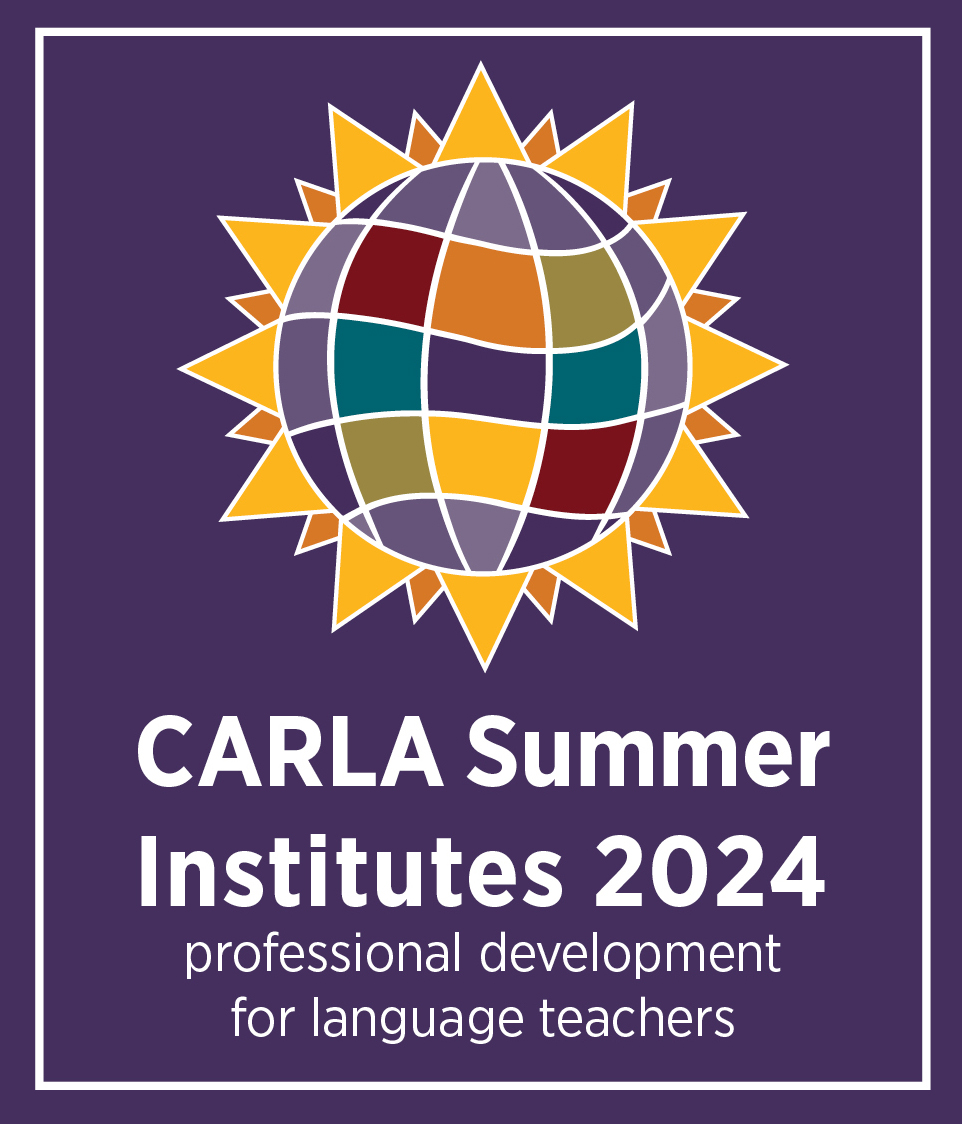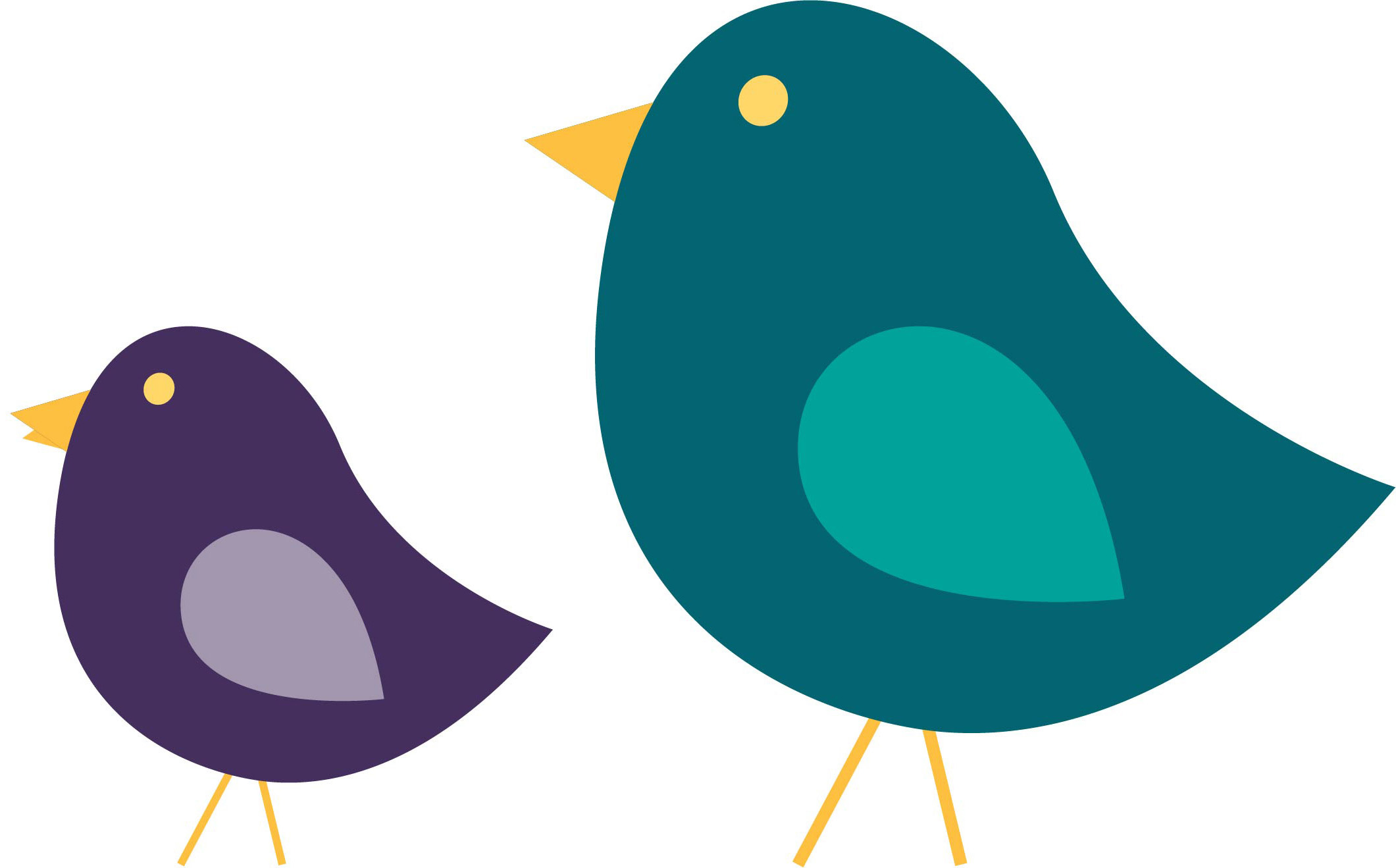|
Add yourself to the CARLA mailing list
Can't see the graphics? View this on the web.
| ||||||||||||||||||||||||||||||||||||||||||||||||||||||||||||||||
|
||||||||||||||||||||||||||||||||||||||||||||||||||||||||||||||||
| | ||||||||||||||||||||||||||||||||||||||||||||||||||||||||||||||||
|
Last chance to register! 12th International Language Teacher Education Conference 2024 Theorizing Practice, Practicing TheoryMay 30–June 1, 2024 This unique conference addresses the education of teachers of all languages, at all instructional and institutional levels, and in all the national and international contexts in which this takes place, including: English as an additional/world language (e.g., ESL, EFL) instruction; world/modern/classical language teaching; bilingual education; immersion education; indigenous and minority language education; heritage language education; and the teaching of less commonly taught languages. Plenary Speakers
Information and Registration
This conference is sponsored by the Center for Advanced Research on Language Acquisition at the University of Minnesota and in partnership with the Center for Educational Resources in Culture, Language & Literacy (CERCLL) at the University of Arizona, Professionals in Education Advancing Research and Language Learning (PEARLL) at the University of Maryland, and many units at the University of Minnesota. |
||||||||||||||||||||||||||||||||||||||||||||||||||||||||||||||||
| |
||||||||||||||||||||||||||||||||||||||||||||||||||||||||||||||||
| | ||||||||||||||||||||||||||||||||||||||||||||||||||||||||||||||||
|
| Priority Scholar | School/Institution Location |
Language(s) | CARLA Summer Institute |
|---|---|---|---|
| Monica Battaglia | La Scuola International School East Palo Alto, CA |
Italian | Creativity in the Language Classroom |
| Tamara Devine | Capital Community College Hartford, CT |
ESL, French | Language & Culture in Sync: Teaching Linguistic Politeness and Intercultural Awareness |
| Ayman Elbarbary | Indiana University Bloomington, IN |
Arabic | EmojiEd: Integrating Authentic Social Media in Language Teaching |
| Eugênia Fernandes | University of California, Davis Davis, CA |
Portuguese, Spanish | Integrating Career Readiness into Language Programs |
| May George | Smith College Northampton, MA |
Arabic | Culture as the Core in the Second Language Classroom |
| Elizabeth Huntley | University of Colorado Denver, CO |
Arabic | Integrating Career Readiness into Language Programs |
| Milvia Hernandez | University of Maryland Baltimore County (UMBC) Baltimore, MD |
Spanish | Critical Approaches to Heritage Language Education |
| Víctor Garre León | University of Texas at Austin Austin, TX |
Spanish | Language & Culture in Sync: Teaching Linguistic Politeness and Intercultural Awareness |
| Jocelly Meiners | UC Santa Barbara Santa Barbara, CA |
Portuguese | Planning Social Justice Lessons: Critical Pedagogies in Action |
| ThuyAnh Nguyen | University of Michigan Ann Arbor, MI |
Vietnamese | Getting Started With Project-Based Language Learning |
| Mila V. Padilla | Albuquerque Public School Indian Education Albuquerque, NM |
Shiwi'ma Bena:we (Zuni) | Critical Approaches to Heritage Language Education |
| Junko Schwartzman | State University of New York Binghamton, NY |
Japanese | Language & Culture in Sync: Teaching Linguistic Politeness and Intercultural Awareness |
| Yung-Chi Sung | Tzu Chi Boston Academy Bedford, MA |
Chinese | Practical Program Evaluation for Heritage Language Education |
| Charlize Hsiang-Ling Wang | The Ohio State University Columbus, OH |
Chinese | Planning Social Justice Lessons: Critical Pedagogies in Action |
| Wenbo Yang | Foreign Language Immersion and Cultural Studies School Detroit, MI |
Chinese | Secondary Dual Language and Immersion: Achieving the Promise of Continuation Program |
Information
- Learn more on the Priority Teacher Professional Development Scholarship website.
- Applications for the 2025 program will open in January 2025.
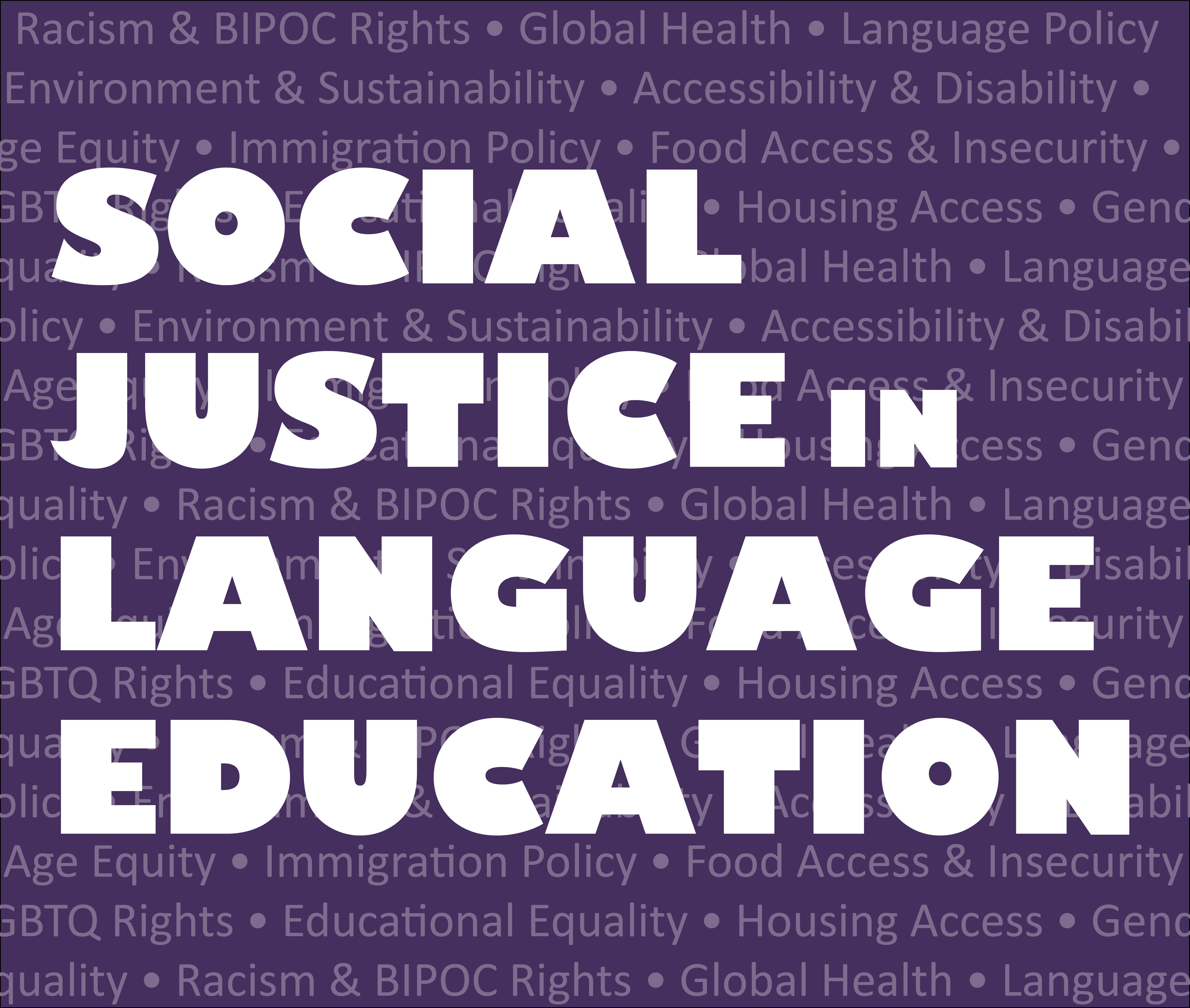 Social Justice in Language Education
Social Justice in Language Education
The Social Justice in Language Education initiative is producing podcast episodes featuring teachers who participate in a CARLA social justice workshop and follow-up professional learning community (PLC). These professional development opportunities aim to equip language educators with tools to adapt existing instructional materials and practices and teach a variety of topics related to social justice in language education.
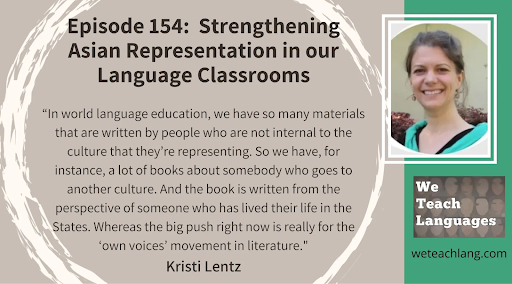
In the inaugural podcast episode, recently released through We Teach Languages, CARLA Director Kate Paesani and Yoko Hama, the graduate research assistant for the initiative, interviewed Kristi Lentz about her experiences participating in the CARLA workshop and PLC on Amplifying Asian Voices in Language Education with Flexibility and Resilience. Ms. Lentz shared what she learned and how it has informed her work as a Spanish teacher and helped her intentionally focus on connecting her students to the world and to their own stories.
Literacies in Language Education
CARLA's Literacies in Language Education initiative gives teachers research-based tools, resources, and experiences that help them effectively apply multiliteracies pedagogy and engage students with target language texts in secondary and post-secondary classrooms.
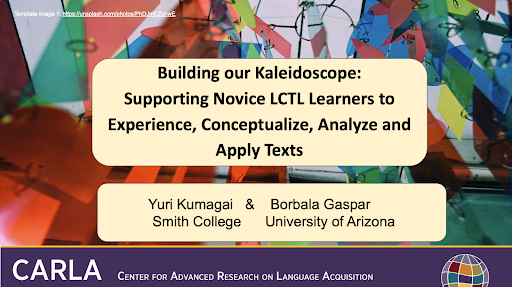
To address the paucity of literacies-oriented materials for less commonly taught languages (LCTLs), CARLA is offering a two-year workshop series that addresses pressing needs for LCTL teachers. The 2023–2024 workshops focused on implementing multiliteracies pedagogy in introductory LCTL classrooms; the 2024–2025 workshops will focus on developing students’ knowledge of language forms through multiliteracies activities.
Resources from the second workshop, Building our Kaleidoscopic: Supporting Novice LCTL Learners to Experience, Conceptualize, Analyze and Apply Texts are available on the Literacies for LCTLs webpage.
CARLA Presentation Series Recordings
CARLA sponsored a total of 12 presentations and webinars during the 2023–2024 academic year. Over 800 language educators zoomed in from 46 states plus Washington D.C. and 62 countries to attend these presentations.
Below are the presentations that were recorded and posted on the CARLA YouTube channel:
Addressing Gender and Sexual Diversity in Language Teaching
September 20, 2023
Presenter: Joshua M. Paiz
Studying Romance Languages in the US: Decision-Making in Regard to Language Choice and Persistence after the Language Requirement
October 5, 2023
Presenter: Federico Fabbri
Using TikTok and Instagram Reels to Support Learning Development and Cultural Awareness in Beginning French Courses
October 19, 2023
Presenters: Chimène Dupuis and Amanda Dalola
Promoting Greater Equity and Access to Minnesota Seals of Bilingualism
November 1, 2023
Presenters: Kendall King and Ayumi Stockman
Designing Teaching Materials to Integrate Content and Language in Secondary Dual Language and Immersion
November 9, 2023
Presenter: Cory Mathieu
Implementing Social Justice Curricular Units: Words of Wisdom from Language Teachers
December 7, 2023
Presenters: Stephanie Anderson, Sara Finney, Ashlie Henery, and Ilknur Lider
A Brief Introduction to Language Program Evaluation: Facts, Myths, and Resources
January 23, 2024
Presenters: Margaret Malone and Celia Chomón Zamora
Teaching Roundtable: Ideas from the CARLA Summer Institutes
February 8, 2024
Presenters: Mai Al-Khatib, Chimène Dupuis, Sally Kessler, Marie Mangold, and Ayumi Mita
Exploring Identity Through Social Justice Pedagogies
February 22, 2024
Presenters: Stephanie Anderson, Nadya Clayton, Sara Finney, and Ashlie Henery
Adopting Scenarios as a Mechanism for Measuring L2 Fluency
March 28, 2024
Presenter: Leiry K. Warren
Student Experiences of Gender-Inclusive Language in the Spanish Undergraduate Classroom
April 9, 2024
Presenters: Camille Braun, Fernando González Lesniak, Yoko Hama, Jacky James, James Ramsburg, and Alejandra Takahira
Learn more on the CARLA Presentation Recordings webpage.
About CARLA
The Center for Advanced Research on Language Acquisition (CARLA) at the University of Minnesota is a Title VI Language Resource Center funded by the U.S. Department of Education devoted to improving language teaching and learning.
The CARLA Update is a quarterly electronic newsletter designed to give second language teachers and researchers current information on the programs and projects currently operating under the auspices of CARLA. We encourage you to share this newsletter.
Visit the CARLA website.
Sign up for the CARLA mailing list.

This email was sent by the Center for Advanced Research on Language Acquisition at the University of Minnesota,
To stop email communication from CARLA, please e-mail the Center at carla@umn.edu.
© 2024 Regents of the University of Minnesota. All rights reserved.
The University of Minnesota is an equal opportunity educator and employer.

